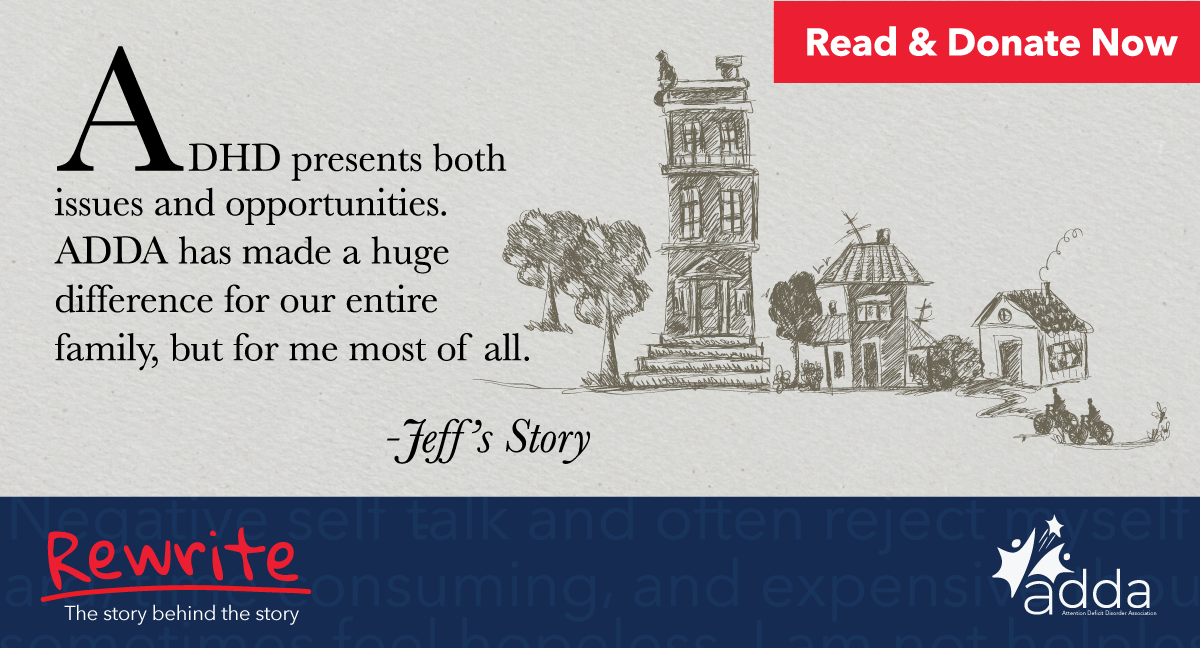My early years remind me most of a quote from the professor who taught my freshman speech class. “Your impromptu speeches sound so good, especially when compared to your planned speeches, that I can only conclude all your speeches are impromptu.”
I was incapable of planning ahead. I was very impulsive. I also had a very short fuse. My temper was especially dangerous. I was small and skinny, only 5 feet tall in high school. I started many fights, but I never won any of them.
I didn’t fit in. I was always disappointed in myself. I often felt I was watching my things happens, as if I was watching myself in a play.
It wasn’t until my senior year in college that I began to learn how to study. I worked full-time on second shift and attended school in the morning. I learned to study when I could instead of only last minute when I had to.
I finished my degree, and started a Master’s program. I attended full-time but switched to part-time to finish. I still battled issues with planning, time management, and managing my finances. I couldn’t save money. I also battled with constant anxiety. I felt I was a fraud getting away with something. I knew I was different, and someone would catch and expose me. I was always afraid to celebrate any achievement because I never felt I deserved it.
During my Master’s, I got married. A partner with ADHD presents unique challenges, especially with communication. But it also gives you accountability. I have learned to outline my plans for the day to her, in part to set my own goals each day.
I began to meditate, and I trained as a mediator. These helped with my anger and automatic hostile responses. But I attribute much of my improved ADHD to vigorous regular bicycle riding – 50 to 100 miles per week.
Within the first five years of our marriage, we had two sons. As the boys grew, it became clear they both had ADHD like their parents. Each son’s ADHD had a unique presentation. The oldest was a “typical” ADHD child. Very expressive and outgoing. He had difficulty sitting still or studying. He often agitated his brother and others to provoke a response. My youngest son, what we now know is ADHD – Inattentive Type, was a distracted dreamer.
The boys did acceptable but not stellar work through elementary and middle school. I remember many comments about the oldest child needing to apply himself.
In middle school, my oldest son’s issues became very plain. He tested as gifted but was could not complete assigned work on time. The school insisted he was lazy and needed to apply himself. We spent many school nights at the dining room table helping him focus on his assignments.
Since the school was unwilling to test him, we sought a psychologist to work with him along with my wife and myself.
On one occasion, I found myself alone with the psychologist. I commented that my research on ADHD made me suspect I too might have ADHD. She laughed. She said there was no question I was ADHD. It was only a question of the severity.
I became a voracious researcher on ADHD. During my search, I found ADDA. I attended an ADDA Conference in Washington, DC and I learned so much.
I appreciated ADDA’s approach. You could manage ADHD. You didn’t need to drug it into submission. This fit into the philosophy that my wife and I had adopted with ourselves and our children. We had never wanted to use drugs to “get rid of ADHD.”
ADHD presents both issues and opportunities. Yes, it can make it difficult to fit into a neurotypical world. We may struggle with the occasional episode of depression and anxiety as a result. But it also enhances creativity and gives us a unique worldview.
At ADDA, I learned wasn’t alone in the world with my condition. There were others like me, and I could be myself. I am grateful to ADDA for their education, information, and community. It has made a huge difference for our entire family, but for me most of all.
I chose to give back by volunteering with ADDA. I took on various roles during my years volunteering with ADDA.
I have retired from ADDA as a volunteer, but I am still an active ADDA member. I take part in the Retirees Virtual Peer Support Group.




